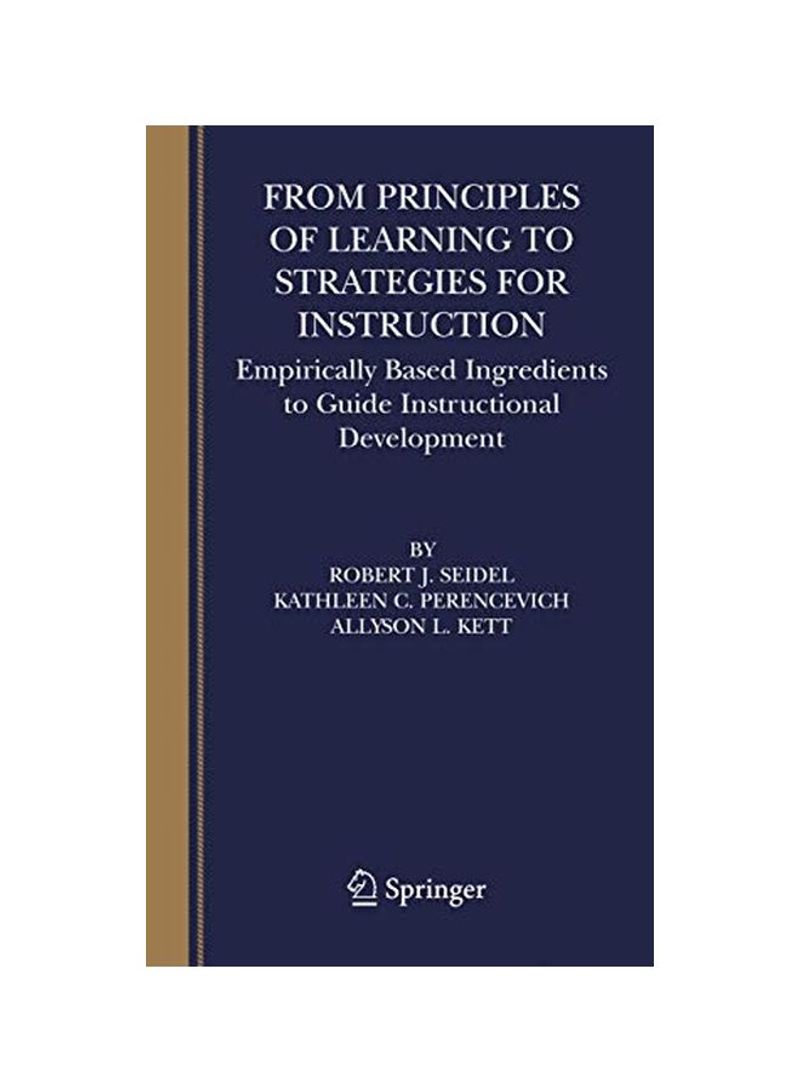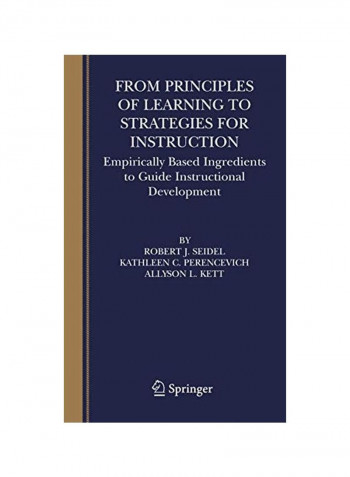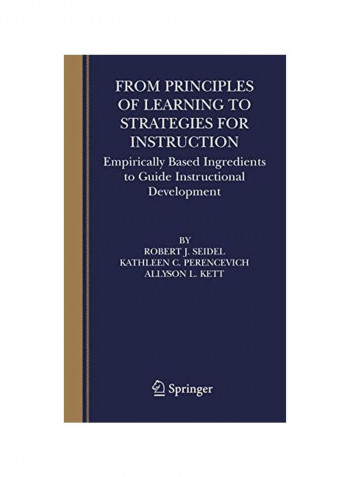From Principles Of Learning To Strategies For Instruction: Empirically Based Ingredients To Guide Instructional Development Paperback
Recommend
Sort by
Rating
Date
Specifications
Author 1
Robert J. Seidel
Book Description
The primary goal of instructional design is improving the quality of learning and instruction. Instructional designers have focused on a number of areas of critical concern and developed a variety of techniques to achieve this goal (Reigeluth, 1983, 1999). Critical areas of concern for those who plan, implement and manage instruction include (a) needs assessment (identifying gaps or deficiencies in knowledge and performance to be addressed in instruction); (b) task analysis (identifying the types of knowledge, skills and attitudes to be developed during instruction); (c) learner analysis (determining who the learners are, what they know, relevant differences, etc. ); (d) instructional strategies (developing strategies appropriate for the task and learners involved); and (e) assessment and evaluation (determining how to assess individual progress and evaluate programs). There are many books already in print that treat the general domain of instructional design, as well as texts that target each of these areas of concerns. Why then another book on these issues? There are several answers to this question. Many of the available books treat instruction as a formal process that proceeds according to specific and detailed instructional systems development models. Indeed, the US military has created a series of handbooks specifying details of the various instructional development processes (see Department of Defense, 1999).
ISBN-10
1441936327
ISBN-13
9781441936325
Language
English
Publisher
Springer-Verlag New York Inc.
Publication Date
29-Oct-10
Number of Pages
230
About the Author
Currently, Dr. Robert J. Seidel is Research Chief Emeritus at the Army Research Institute. He attained his Ph.D. in Experimental Psychology from the University of Pennsylvania and was a NIH Special Postdoctoral Fellow at Stanford University. He has taught full- time at Denison University, and part-time at, George Washington University, the University of Maryland, and Trinity College in Connecticut. He has a varied and rich experience base spanning over 36 years of research, development, and management in the areas of experimental design, individualized instruction, computer-administered instruction, technology transfer, distance learning, and evaluation. In these areas of expertise, he has given many talks, nationally and internationally, published numerous articles and seven books. He was principal investigator for a National Science Foundation grant, which resulted in his co-authoring, (with colleagues B. Hunter, C. Kastner, and M. Rubin) Learning Alternatives in U.S. Education: Where student and computer meet. Dr. Seidel organized, then conducted an educational technology conference, and subsequently edited (with M. Rubin) a book, Computers and Communication, based on the findings from the conference. The next book, Computer Literacy, was edited by Dr. Seidel, R. Anderson, and B. Hunter. He has also managed groups of research personnel in both the private sector and in government, and has served many years as an advisor to NATO for the implementation of advanced technologies. As part of his NATO work, Dr. Seidel served as senior editor and contributed chapters to four books dealing with the use of technology in education and training.
Author 2
Kathleen C. Perencevich
Author 3
Allyson L. Kett



